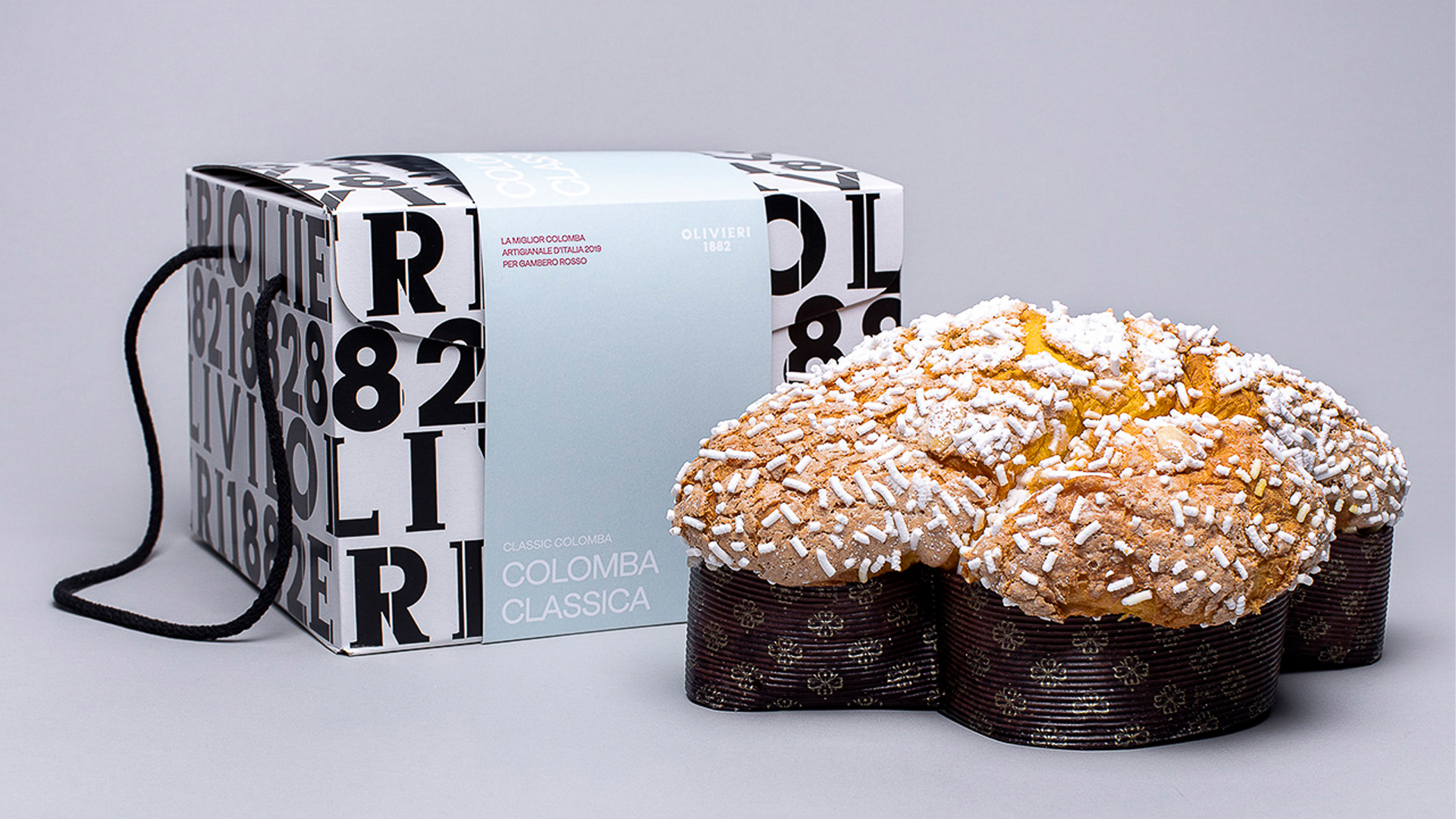Olivieri 1882, a 140-year-old intergenerational bakery based in Arzignano, in Italy’s northern Veneto region, arguably makes the best Colomba di Pasqua in Italy. Their dessert has not only won a number of awards in the country, including food magazine Gambero Rosso’s “Best Artisanal Colomba of Italy” in 2019, but has also been distinguished in American publications such as Bon Appétit, The Washington Post, and Eater.
What is a Colomba, you might ask? Put simply, it’s Italy’s most famous and popular Easter-time dessert. Fluffy, light, and rich in flavor, the treat is baked into the shape of a dove, the official symbol of Easter, and can be considered the spring-time relation of Panettone, a dome-shaped dessert enjoyed by Italians at Christmas.
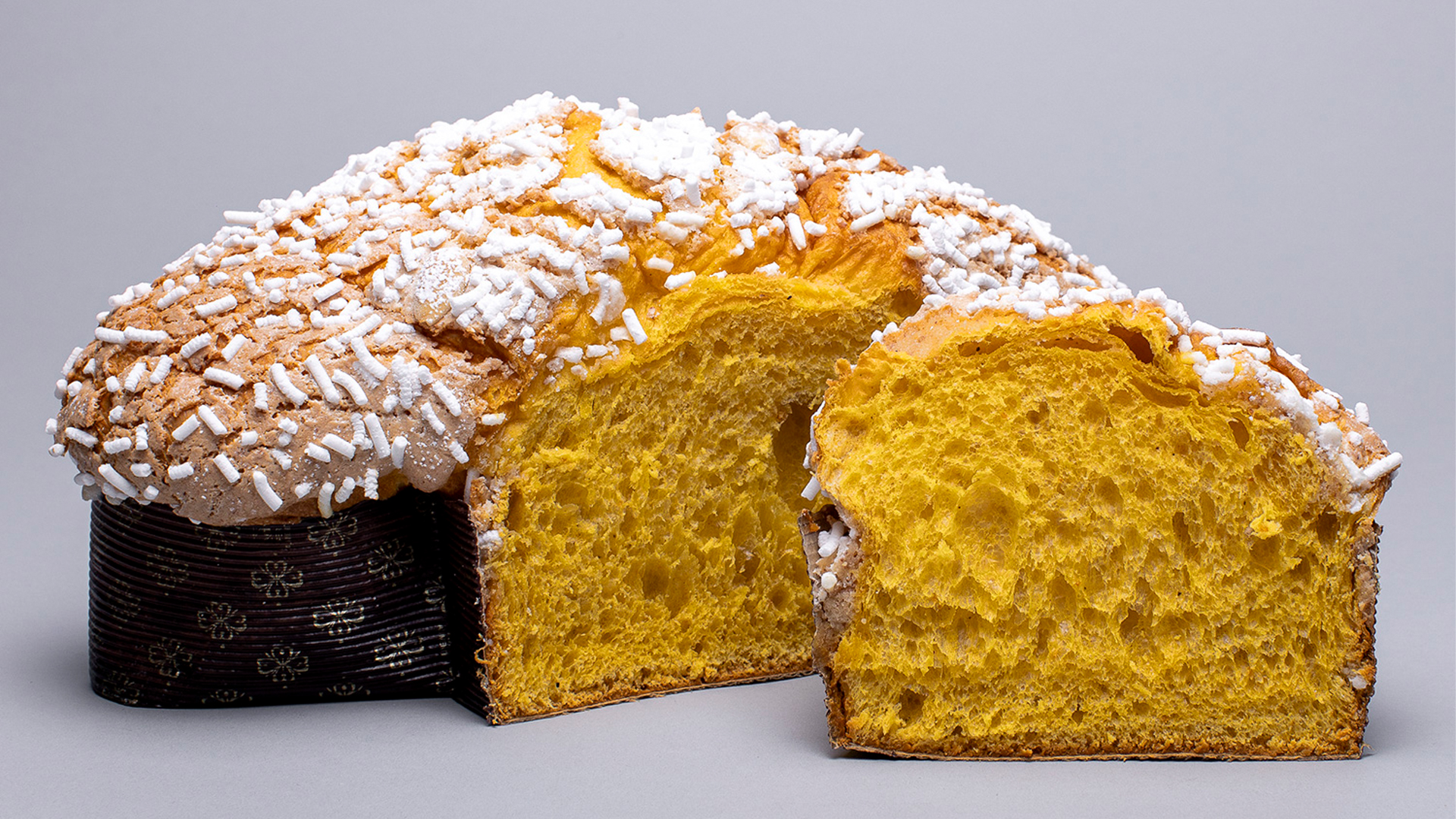
(Photo Credit: Stuntman Public Relations)
Olivieri 1882’s traditional handmade Colomba, derived from a generations-old family recipe, blends Tahitian Bourbon vanilla bean, raw cane sugar, centrifuged Belgian butter, and Italian acacia honey. The treat is freckled with chopped candied oranges and topped with an almond, hazelnut, pine nut, and pearl sugar glaze. Alongside this classic rendition of the dessert, Olivieri 1882 also makes revisited Colombas, such as apricot and salted caramel, lemon and vanilla, and orange tangerine and cardamom.
The bakery is currently run by sixth generation Nicola Olivieri, who officially took over the family business in 2012. In 2020, he sought to introduce his bakery’s panettone and colomba to the United States, instituting a 48-hour international shipping policy. Colombas cost $75, excluding a $10 shipping fee. His family’s intergenerational products have been received well, to the point of selling out, over the last three years, but Olivieri wants to take it a step further. He says he’d like to eventually open a branch in New York City to more permanently bring a taste of il bel paese to the United States. “We are just so excited for Americans to get to know our products, and to bring Italian pastry to the States.”
America Domani sat down with Olivieri to chat about his background in pastries, the legacy of his family’s historic bakery, and the secret behind what makes Olivieri 1882’s Colomba an awards-winning product. The following interview has been edited for length and clarity.
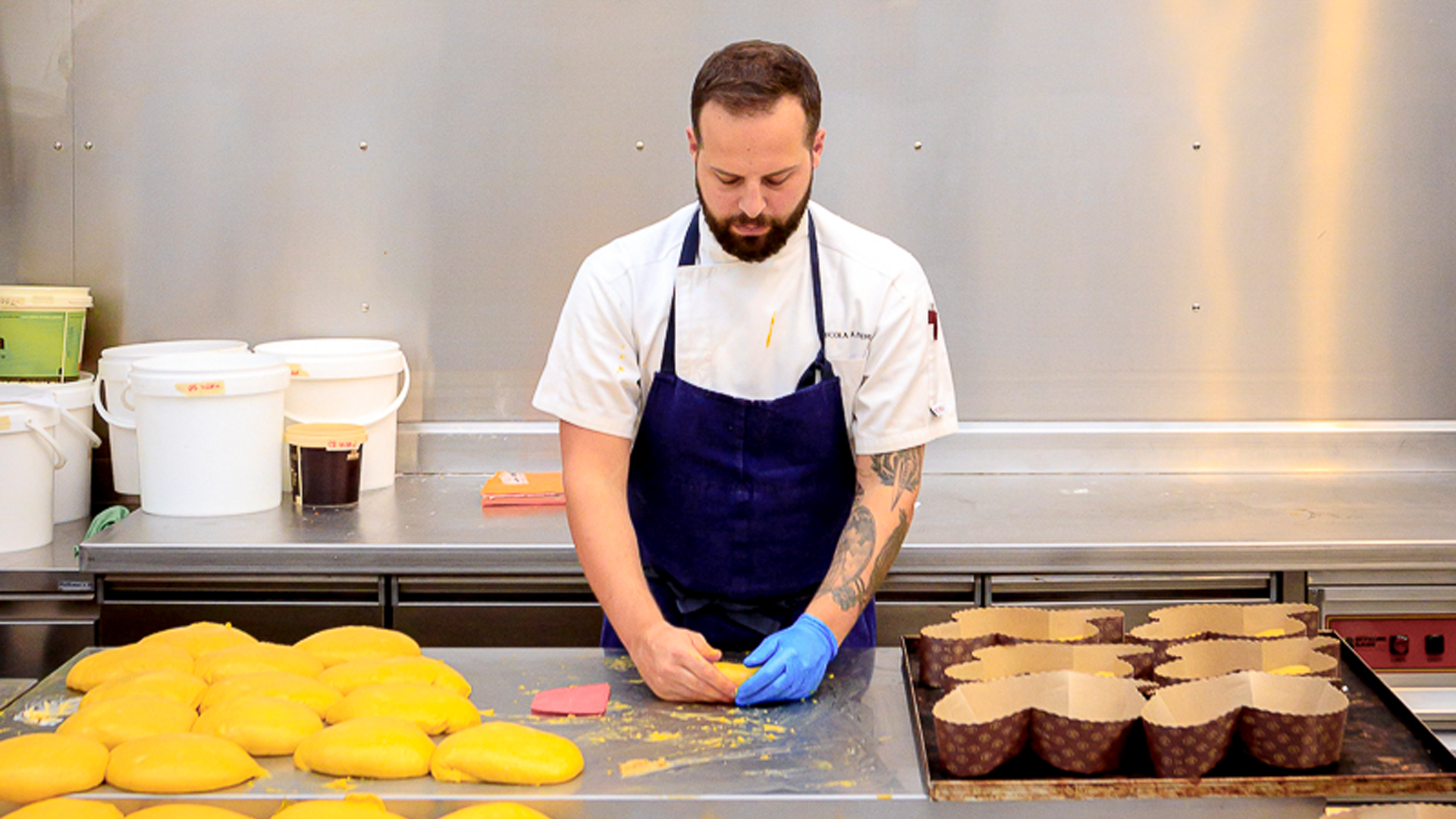
(Photo Credit: Stuntman Public Relations)
America Domani: Can you walk me through the history of Olivieri 1882?
Nicola Olivieri: We are a sixth-generation, family-run business based in Arzignano in Italy’s Veneto region. The bakery was first opened in 1882 by our ancestor Luigi Olivieri. It started out as a simple bakery that produced hearty loaves of bread. The bakery persisted despite World War II and other obstacles. My grandfather Bianco Olivieri eventually took the reins and added a large laboratorio, allowing the humble bakery to grow and steadily expand its repertoire. My nonna Miranda began to make her ciambelle, crisp, “donut” shaped cookies which became a hit – she even began to dabble in retail, selling them to local grocery stores.
My grandfather passed away when my father Oliviero was very young, and my father made the decision to step into his father’s shoes with the support of my mother Patrizia. They added their own touch to the bakery, renovating the space with state-of-the-art baking equipment. My father also chose to add on a caffetteria, or coffee bar. I initially was resistant to joining the business but changed my mind after a year abroad in Australia. I worked for a family-run, Italian bakery in Melbourne and was inspired by how they both maintained tradition and incorporated innovation and modernity.
I decided to return home to Arzignano and do the same for Olivieri 1882. In the years since that decision, the bakery has garnered many awards and recognitions from national names like Gambero Rosso and has been featured in major U.S. outlets like The New York Times, The Boston Globe, The Washington Post, Eater, Epicurious, and The Today Show. And now we distribute our Panettone both online and b2b, in more than 20 countries all over the world, collaborating with top luxury department stores and boutiques.
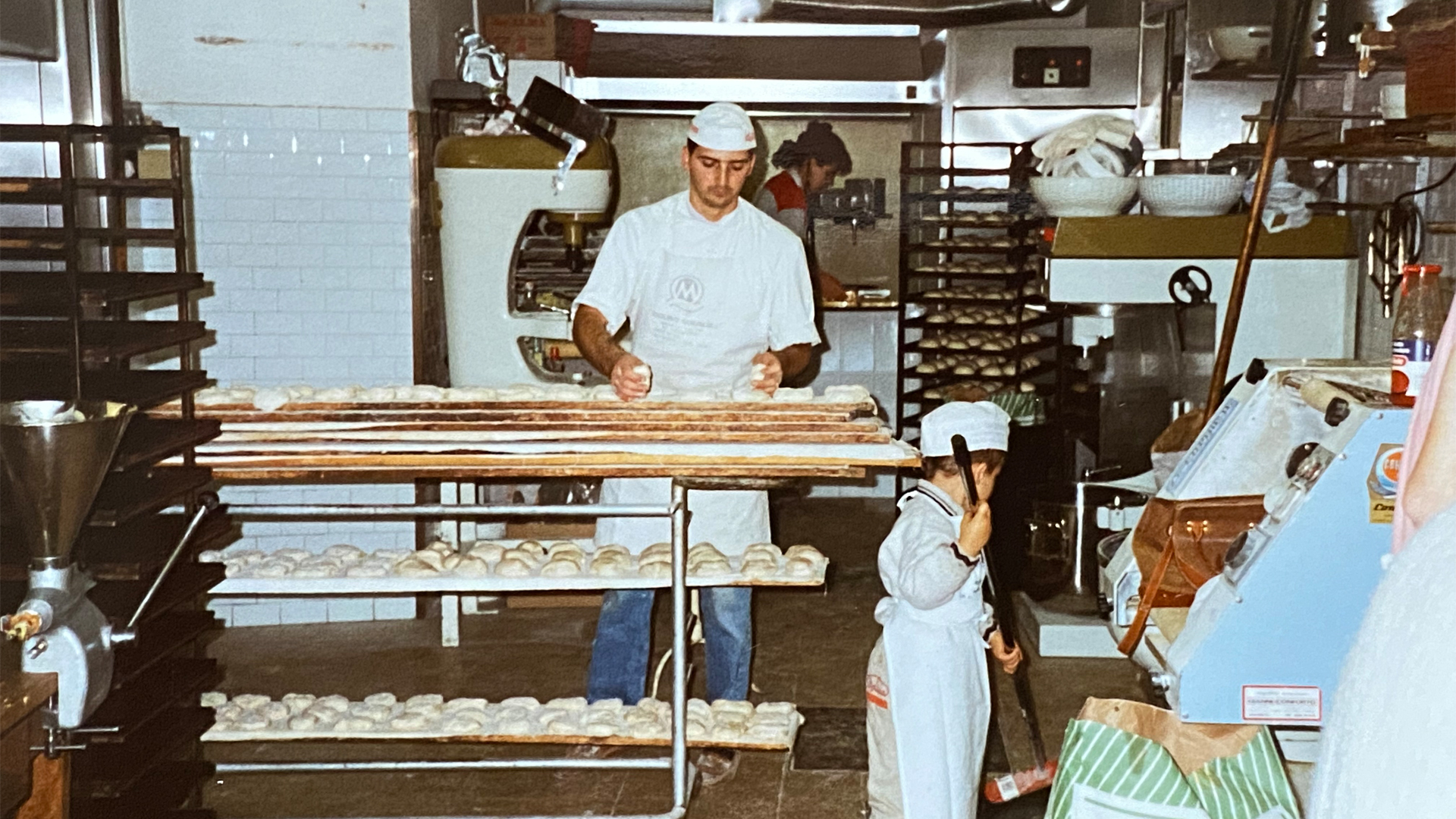
(Photo Credit: Stuntman Public Relations)
AD: What are some of your earliest memories regarding the business?
NO: I have many memories of being a child in the bakery and watching my parents baking bread, and around Easter, colomba. I remember coming home from football practice and being handed a slice of whatever had just come out of the oven as a snack!
AD: What is your personal background in pastries?
NO: The majority of my pastry education comes from growing up in the bakery and learning from my parents. I then expanded my training in Melbourne and continued courses upon my return to Italy in 2010.
AD: When did you take over Olivieri 1882, and what are some of your responsibilities?
NO: I took over the business officially in 2012. I honestly do a little bit of everything! I oversee production, appoint staff, seek out new collaborations and opportunities. My biggest goal at the moment is to introduce the brand and our lievitati specifically to a global audience. In 2020 I decided to officially bring our panettone and colomba to the U.S., and so far, they have been very well received.
(Photo Credit: Stuntman Public Relations)
AD: What is your bakery’s most popular product, both nationally and internationally?
NO: Without a doubt our panettone. We use an old family recipe that’s been passed down and perfected from generation to generation. We offer a Panettone Classico made with Australian 5 crown sultanas, candied oranges, and Tahitian Bourbon vanilla.
In the last few years I’ve also introduced additional flavors to our line-up including Apricot and Salted Caramel, Triple Chocolate and Lemon, Cherry, and Pistachio. Americans have enthusiastically accepted our panettone with open arms – we are now working on introducing them to Colomba, which is panettone’s springtime counterpart!
AD: What is your bakery’s most popular season/s?
NO: The holidays for sure - Christmas and Easter.
AD: When did your bakery institute international shipping?
NO: We instituted international shipping in 2020. The pandemic essentially stopped tourism and travel, so it was a year in which we were able to ship a piece of Italy directly to the States and other parts of the world. Our Panettone and Colomba arrive anywhere in the U.S. in 48 hours. We have shipped from everywhere to New Zealand to South America.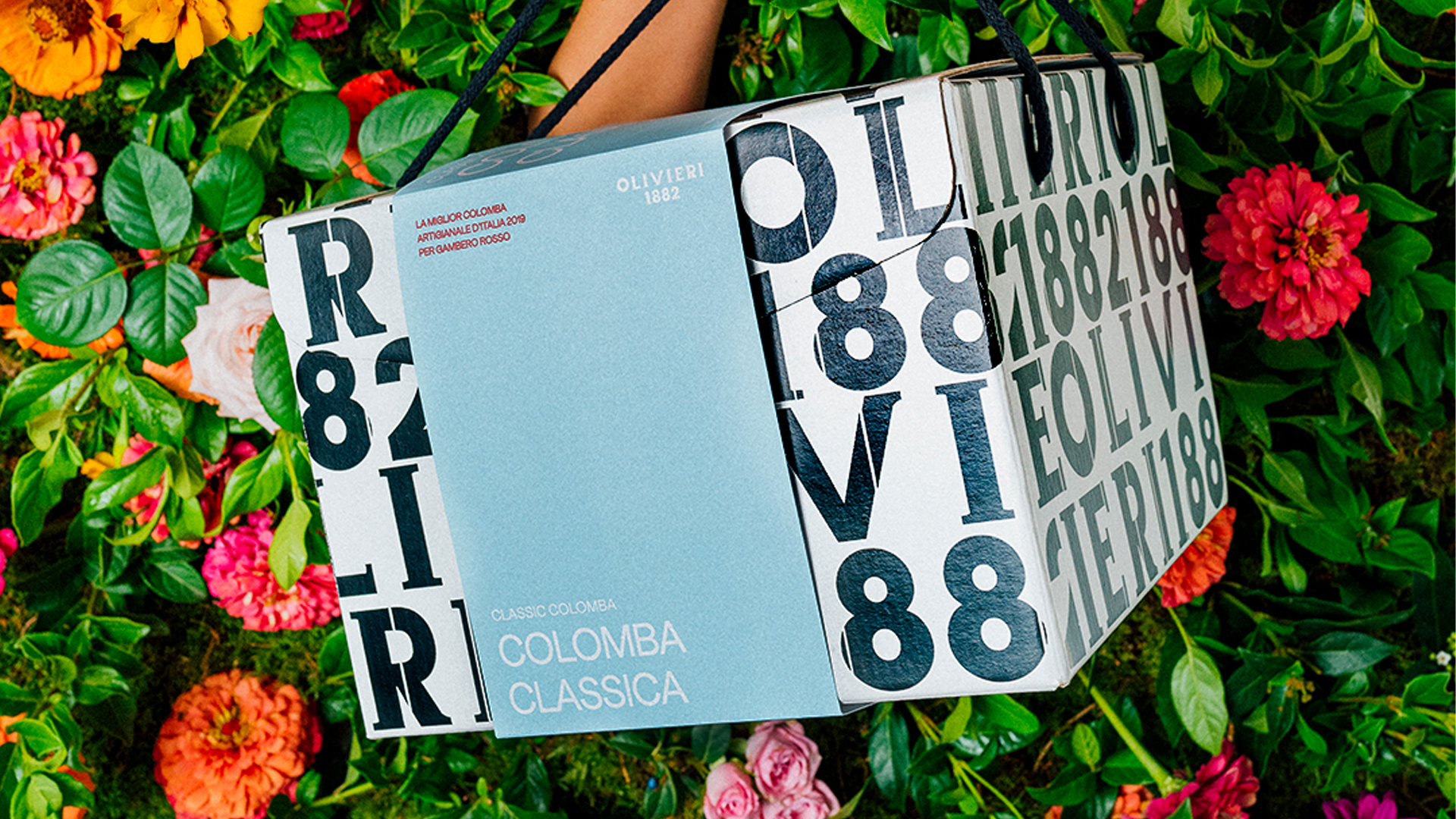
(Photo Credit: Stuntman Public Relations)
AD: What are your plans regarding the future of your family business?
NO: We plan to continue to expand our presence globally with a particular focus on the U.S. and eventually open our own bakery in New York.
AD: What are you most proud of regarding your bakery, and why?
NO: I am proud that Olivieri 1882 has firmly remained a family-run business. Each one of my predecessors helped to evolve the bakery and added their own twist and personality. I hope if my children are also passionate about the company they can one day follow in my footsteps too.
AD: I read online that your bakery is a mix of contemporary and old-school flavors and traditions. Can you elaborate on that? What specifically highlights this fusion between the old and new?
NO: We offer very traditional products, like Panettone Classico and Colomba Classica but certainly experiment with different flavor profiles. I revamped our packaging to make it sleek and modern.
Overall, I wanted to “svecchiare” Olivieri 1882, keeping it firmly rooted in tradition while steering it into the modern era, a contemporary Italian bakery. Lastly, it’s also always been important to me that the brand grow beyond Arzignano and be recognized on an international stage
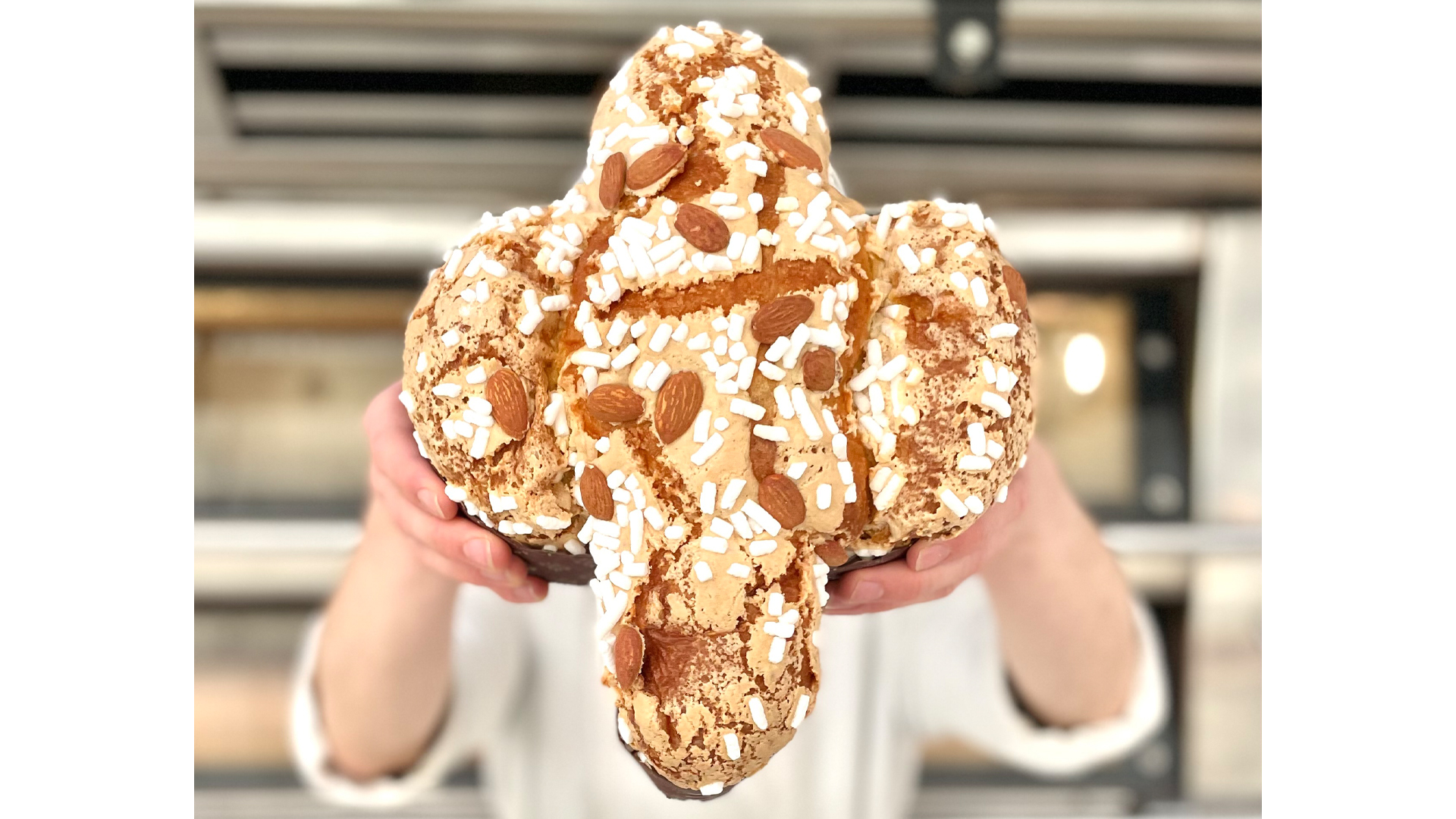
(Photo Credit: Stuntman Public Relations)
AD: Can you tell me a little more about the ingredients you use for your Colomba? Is this an old family recipe, or one that has been altered throughout the generations?
NO: Like most of our recipes, the Colomba recipe has been passed down from generation to generation and perfected over time. Its original "ancestor" was the Fugassa Veneta, or the Focaccia Veneta. Fugassa is a traditional Easter sweet from my native region of Veneto (located in north-eastern Italy). It’s a yeasted cake similar to colomba but its origins are far more rustic as it was considered a “dolce dei poveri,” or poor man’s dessert.
To celebrate Easter Sunday, families would splurge once a year and bake a cake using the same dough as bread and add sugar, butter and eggs, [which were] at the time expensive ingredients. Our Colomba Classica recipe grew out of the Fugassa Veneta. It is 100% handmade, and is concocted with exclusively high-quality ingredients like Tahitian Bourbon vanilla bean, raw cane sugar, centrifuged Belgian butter, and Italian acacia honey. Finely chopped candied orange stud the colomba which is then topped with an almond, hazelnut, pine nut, and pearl sugar glaze.
A four-day production process, painstakingly long fermentation, and zero preservatives leads to a fluffy and extremely digestible Colomba. Our Colomba was awarded the best in all of Italy in 2019 by Gambero Rosso and was recently featured in USA Today and The Boston Globe.
AD: What do you think the Colomba symbolizes for your bakery, and for Italy as a whole?
NO: The Colomba naturally symbolizes Easter and springtime, but it also is representative of families coming together and partaking in tradition. I certainly remember the excitement of eating Colomba on Easter Sunday when I was a kid – I love seeing my own childrens’ enthusiasm for Colomba too!
Asia London Palomba
Asia London Palomba is a trilingual freelance journalist from Rome, Italy. In the past, her work on culture, travel, and history has been published in The Boston Globe, Atlas Obscura, The Christian Science Monitor, and Grub Street, New York Magazine's food section. In her free time, Asia enjoys traveling home to Italy to spend time with family and friends, drinking Hugo Spritzes, and making her nonna's homemade cavatelli.

